AN INTRODUCTION TO GHAR JAGGA KATHMANDU
“Ghar Jagga” refers to residential properties in Kathmandu, or in Ghar Jagga Kathmandu, the bustling capital of Nepal. Kathmandu, nestled in the Kathmandu Valley, is a melting pot of culture, history, and rapid urbanization, influencing the dynamics of its real estate market.
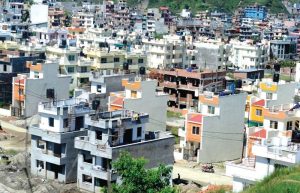
The city’s real estate scene is marked by a diverse range of “ghar jagga” or residential properties, catering to the varied preferences of its inhabitants. Traditional Newari homes, with their distinctive architecture and intricate woodwork, add a historical and cultural flavor to the landscape. As urbanization accelerates, modern apartments and condominiums have emerged, providing contemporary living spaces equipped with modern amenities.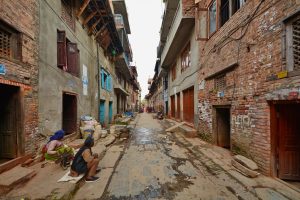
The demand for residential properties in Kathmandu is driven by a combination of factors, including population growth, rural-to-urban migration, and the city’s economic vibrancy. The influx of people seeking opportunities in education, employment, and commerce has fueled the construction of apartment complexes and housing developments.
A HUB OF TOURISM
Kathmandu’s real estate market also responds to the city’s role as a tourism hub. The presence of heritage sites and the allure of the Himalayas draw visitors and expatriates, contributing to the demand for short-term rentals, guesthouses, and boutique hotels. This dynamic creates a diverse mix of residential options catering to both locals and the transient population.
However, challenges persist in the “ghar jagga” landscape. Rapid urbanization has led to concerns about infrastructure strain, traffic congestion, and environmental sustainability. Additionally, issues related to property documentation, land ownership, and zoning regulations pose challenges for both buyers and developers.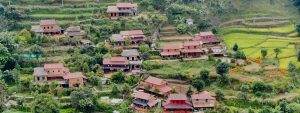
Government initiatives to streamline real estate transactions and facilitate foreign investment have aimed to address some of these challenges. The real estate market in Kathmandu, while presenting opportunities for investment and development, remains a complex terrain that requires careful navigation.
In conclusion, “ghar jagga” in Kathmandu encapsulates the evolving narrative of urban living in Nepal. From the charm of traditional Newari homes to the modern conveniences of apartments, the city’s real estate reflects its cultural heritage, economic dynamism, and the aspirations of its diverse population. As Kathmandu continues to grow and transform, so too will the landscape of “ghar jagga,” shaping the city’s identity for generations to come.
REAL ESTATE POSSIBILITIES AND OPPORTUNITIES IN KATHMANDU
Ghar Jagga in Kathmandu holds immense potential for diverse real estate opportunities. The city’s rapid urbanization creates a demand for modern apartments, condominiums, and housing developments. Traditional Newari homes, with their cultural allure, remain sought after. Tourism-driven short-term rentals, guesthouses, and boutique hotels are thriving. As the government works to streamline property transactions and attract foreign investment, the market is poised for growth. The dynamic blend of historical charm, urban development, and economic activity positions Ghar Jagga in Kathmandu as a promising sector for both local and international investors, reflecting the city’s evolving real estate landscape.
POSSIBLE OPPORTUNITIES IN REAL ESTATE IN NEPAL
Not limiting in Kathmandu only, Nepal presents a range of promising opportunities in the real estate sector, driven by various factors:
- Tourism-Driven Investments: With its breathtaking landscapes and cultural richness, Nepal attracts a growing number of tourists. Opportunities abound in developing hotels, resorts, and other accommodation facilities.

- Urbanization and Housing Developments: Rapid urbanization, particularly in cities like Kathmandu, creates a demand for residential properties. The construction of modern apartments, condominiums, and housing complexes caters to the evolving needs of the urban population.
- Infrastructure Projects: Ongoing and planned infrastructure projects, such as road expansions and airport upgrades, open avenues for real estate development in surrounding areas. These projects enhance accessibility and increase property values.
- Commercial Spaces: The burgeoning business environment in Nepal, coupled with foreign investments, fuels the demand for commercial spaces. Office buildings, retail centers, and industrial properties present viable investment opportunities.
- Government Initiatives: Government initiatives to streamline property transactions, improve regulatory frameworks, and attract foreign investment enhance the overall investment climate in the real estate sector.
- Heritage Conservation: Preservation and restoration of Nepal’s rich cultural heritage offer opportunities in renovating and repurposing historical buildings for tourism or commercial use.

- Affordable Housing Initiatives: As the population grows, there is an increasing need for affordable housing. Real estate developers focusing on providing cost-effective housing solutions can tap into this market.
- Technology Integration: The adoption of technology in real estate, such as online platforms for property transactions, digital marketing, and smart home solutions, presents opportunities to modernize the industry.
- Environmental Sustainability: Growing awareness of environmental issues creates a demand for sustainable and eco-friendly real estate projects. Green building initiatives and eco-conscious developments have the potential to attract environmentally-conscious buyers.
- Senior Living Facilities: As the population ages, there is a growing demand for senior living facilities and retirement communities. Real estate developers can explore opportunities in catering to this demographic.
Navigating challenges related to land documentation, infrastructure limitations, and regulatory complexities is crucial. However, with strategic planning and a focus on emerging trends, real estate investors and developers in Nepal can capitalize on the diverse opportunities presented by the country’s evolving economic and cultural landscape.
0 Review
Sort by:
Leave a Review


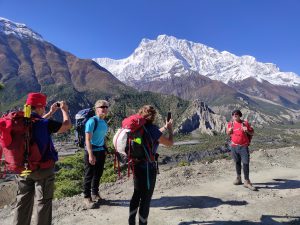
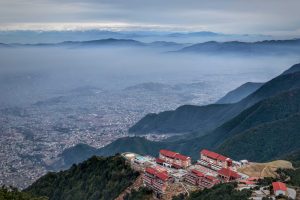


Join The Discussion